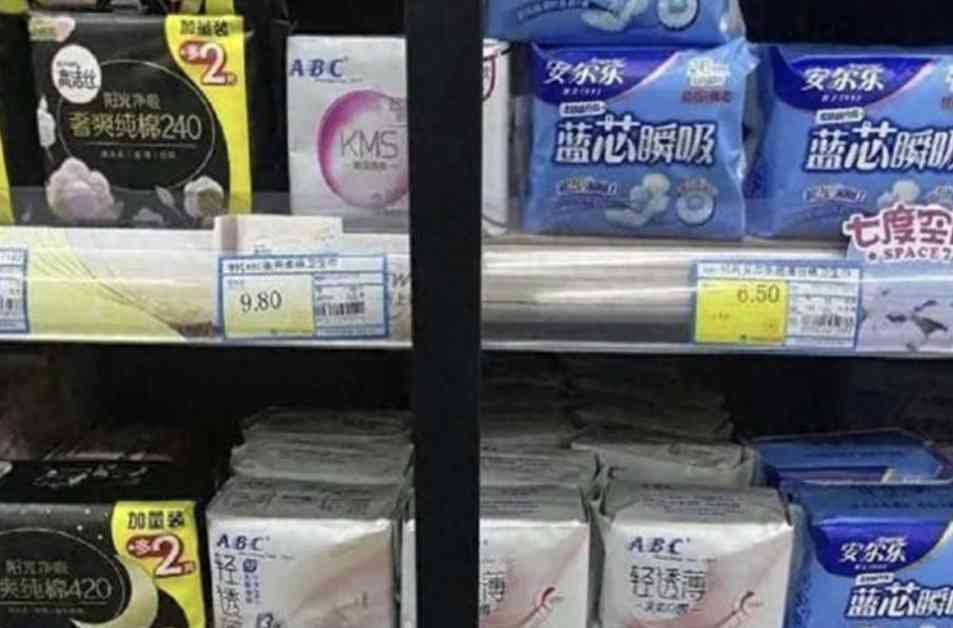Chinese Sanitary Pad Manufacturers Under Fire for Shrinkflation Scandal
Sanitary pad manufacturers in China are currently facing a wave of criticism and backlash after shocking revelations emerged regarding the actual lengths of their products. Videos circulating on social media have exposed that many leading brands are selling pads that fall short of the lengths advertised on their packaging, sparking outrage among consumers and raising concerns about deceptive marketing practices and product quality.
Revelations Spark Outrage and Social Media Uproar
In early November, videos began surfacing on Chinese social media platforms, showing women measuring sanitary pads from popular brands. The results were alarming, with most products found to be significantly shorter than what was promised on the packaging, some by more than 10mm. One viral video posed a poignant question, “Will cutting a few centimeters help you strike it rich?” This inquiry encapsulated the frustration and anger felt by the public, leading to a broader discussion on the exploitation of women’s needs. The investigation featured on YouTube further fueled consumer backlash.
According to findings by The Paper, nearly 90% of the examined sanitary pad products were discovered to be shorter than advertised, with many also containing reduced absorbent layers. While national standards allow for a 4% margin of error in pad length, there are no specific regulations governing absorbent layer sizes, resulting in significant lapses in quality control.
Manufacturers Face Criticism and Issue Apologies
In response to the mounting backlash, major brands like ABC and Shecare have issued public apologies. ABC came under additional scrutiny when a customer service representative allegedly advised a dissatisfied customer to “choose not to buy” their products. The company later acknowledged the inappropriateness of the comment and committed to enhancing product standards to achieve “zero deviation.”
Chinese state media, including Xinhua News Agency, have denounced these practices, underlining the direct link between the quality of sanitary pads and the well-being of users. Authorities have announced intentions to revise national standards to address these discrepancies and ensure consumer safety.
History of Controversies and Broader Implications
The recent scandal is not the first time the Chinese sanitary pad industry has come under scrutiny. Past incidents include a major counterfeit operation exposed in 2016, producing millions of unsanitary pads under false brand names. In 2021, a woman found a needle inside a sanitary pad from the renowned brand Space 7, prompting public apologies and an investigation.
These recurring issues underscore the lack of oversight in China’s feminine hygiene market, valued at approximately £10 billion ($13 billion) annually. Beyond the immediate repercussions, the controversy sheds light on a global challenge: ensuring women’s access to safe and affordable menstrual products.
The lack of access to menstrual hygiene products affects over 500 million women worldwide, leading to severe consequences known as period poverty. In the UK alone, an estimated 2.8 million women experience period poverty, resorting to unsafe alternatives like reusing disposable pads or using socks and newspapers. Unsafe menstrual practices heighten health risks such as urinary tract infections, toxic shock syndrome, and skin irritations, exacerbating the stigma surrounding menstruation and impeding women from seeking necessary medical assistance.
Charities like Period Poverty UK strive to address this issue by providing free sanitary products to vulnerable groups, including homeless women and refugees. The ongoing discourse on period poverty and the recent uproar over sanitary pad lengths highlight the pressing need for transparency, accountability, and improved access to menstrual hygiene products globally.
As Chinese consumers demand higher product standards and companies grapple with increased scrutiny, the current controversy serves as a poignant reminder that menstrual health is not solely an individual concern but a critical public health and human rights issue.













